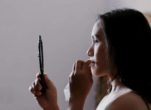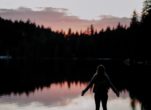
Growing Young and Finding Who We Are
Children are born free spirits. When we come to this world, we know nothing. In the universe of a child, there are no norms to follow, no rigid rules and regulations; there’s real freedom.
From an early age, many of us got to hear about our weaknesses, flaws, and (often perceived) limitations. Families and schooling systems were so focused on the need for improvement, while very seldom (or never, in some cases) acknowledging individual strengths, gifts, and talents. No wonder many of us had or still have to struggle with low confidence and self-esteem.
From the Eastern European society that shaped me, I have learned that beautiful translates to young and slim. As a grown-up woman, I ended up having a dissonant relationship with my body for many years. I was obsessed with the size of my hips and always focusing on things I wanted to change in the way I looked.
As a child, I used to think I was stupid because my brain couldn’t cope with physics and math. I was passionate about literature, foreign languages, music, and arts, but that wasn’t a sign of brilliance in my culture. Much later, I perceived myself as not good enough or average, somehow smart but not intelligent, and I developed a strong need for perfection.
And here I am, in my 40s, going back to my childhood, when anything felt possible and I was able to find complete happiness.
Here’s how my life looked when I was a child:
1. I used to love myself unconditionally.
I can’t recall myself being concerned with any aspects of my body. I didn’t care that my hips were too big or my hair was too thin. I didn’t judge myself as imperfect, less intelligent, or too fat. I was a happy child, filled with positive energy and hunger for life. Someone once called me Smiley. I used to spend my time laughing, playing, and having fun.
2. I used to live in the now.
I can recall how present I was while playing with other children. At the time, I didn’t live in the past (in my “story”), because I didn’t have one. I didn’t live in the future, either, unless people were asking what I wanted to be when I grew up. I had an extraordinary ability to dream and allow myself to be whatever I wanted to.
Whenever I wanted to be a doctor, I was one. If I wanted to be a teacher, I was one. I was even a ballerina one day, and a singer in front of my neighbors, and more. I was too busy playing with other children and enjoying life, so I had no time for imaginary worries, problems, and fears that never came to pass.
3. I used to express my needs and emotions.
In my world—full of playfulness, creativity, and fun—things were straightforward and clear. Whenever I was hungry, I made sure my mother knew about it. When I was afraid, sad, or upset, I said so. Whenever I wanted anything, I said so.
In this open communication space, there was no room for assumptions. I didn’t claim I knew what other people felt or thought. If anything was unclear, I asked. I didn’t let my mind play with me and create scenarios about what other people had in their minds or hearts—because I knew I wasn’t them.
4. I didn’t worry about what other people thought.
Right from my very first years in school, there were situations when I didn’t dare to ask questions, especially when there was something I didn’t know. I didn’t want to look stupid in front of others.
Much later, at work, I was still trapped in this behavior. I didn’t feel comfortable openly admitting I didn’t hold all the answers and I still had to learn. I wanted people to perceive me as an expert, super smart, invincible and strong.
But that’s not who I was as a child. At the time, I didn’t have to wear any masks and pretend; there was no need for people-pleasing so that people would like me more. I loved and approved of myself as I was, and other people’s opinions were unimportant. Validation from others was never a requirement or necessity.
5. I was brave.
Believe it or not, I recall the moment I took my first step. It was in my grandparents’ house, in the living room. I can see myself falling on that blue carpet as if it were yesterday. And there’s another thing I remember: I wasn’t afraid.
Fear is a learned practice. Children are not afraid of trying, failing, and getting up on their feet again. That’s how we get to learn how to walk! When they make the first step, I bet they don’t call themselves names or punish themselves if they fall. They rise up and give it another try. They are not afraid to step outside of their comfort zone and try out new experiences. They keep going.
No matter what our life journey looks like today, there’s still a little child inside us. A loving soul who wants the best for us and loves us unconditionally. Let us remember our true nature, grow young, return to innocence, and reconnect with who we really are.











0 comments to "Growing Young and Finding Who We Are"